Leeds parents knew their baby's life was limited - so set off in their camper van to make family memories
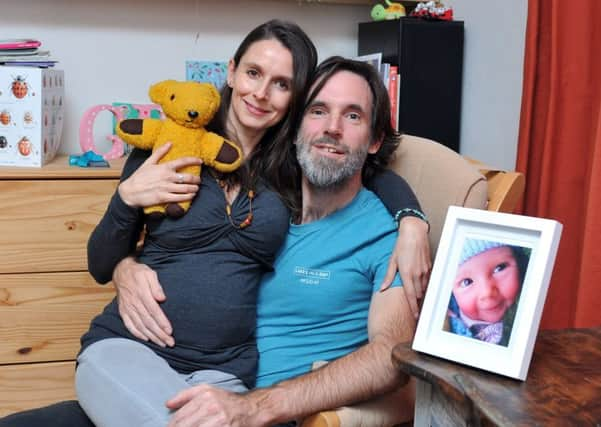

Passing all her health checks and tests, proud mum and dad Clare McVeigh, 41, and Robin Warden, 49, of Burley, Leeds, were happily settling into first-time parenthood and planning their new future as a family of three.
But Clare said her mother’s instinct soon led her to worry that all was not quite right with little Grace.
Advertisement
Hide AdAdvertisement
Hide Ad“At six weeks I picked her up to breastfeed and she didn’t curl up her legs like babies tend to do - they seemed to hang down. I said to my mum that it was strange. I just felt something was wrong.”
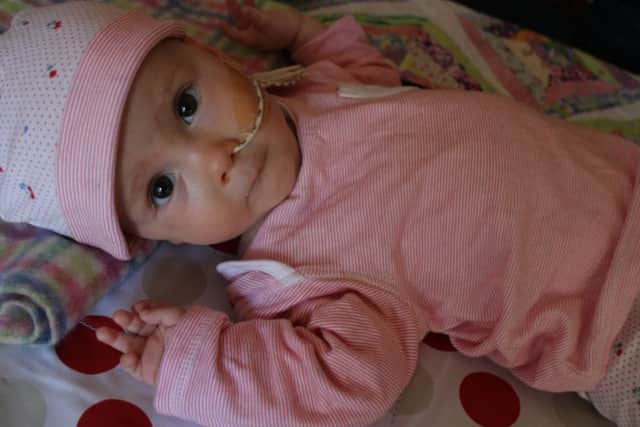

She raised her concerns with doctors and staff at baby clinics, who told her they would keep an eye on her until she reached three months - a motor milestone.
But she continued to notice Grace had a lack of movement in her legs as well as a quivering tongue, which she had read can be a sign of muscle problems, and at three months, a GP referred her to a specialist clinic.
Clare said: “It was horrendous. I’d had that sinking, sickening feeling in the pit of my stomach but until we had a diagnosis, I still had hope.”
Advertisement
Hide AdAdvertisement
Hide AdAt first, the specialists couldn’t make a diagnosis and put Grace on the waiting list for an MRI scan.
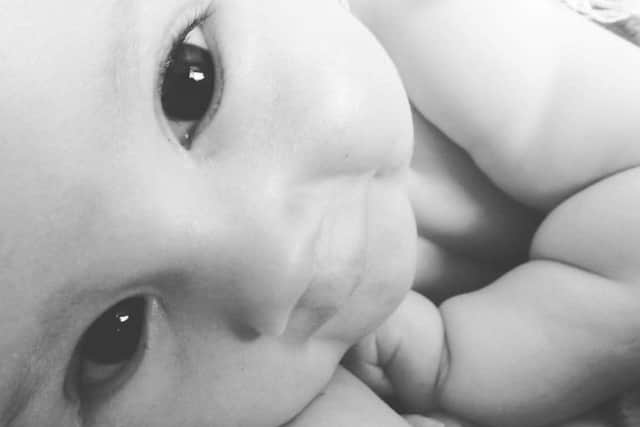

But during a trip to A&E a couple of weeks later - after a choking episode - a paediatric neurologist recognised the symptoms.
Grace’s parents’ worst fears were confirmed and she was diagnosed with the devastating motor neurone disease Spinal Muscular Atrophy (SMA) Type 1.
The condition causes gradual muscle paralysis resulting in the inability to swallow, eat and eventually breathe.
Advertisement
Hide AdAdvertisement
Hide AdClare said: “I heard him say, ‘I’m sorry to say Grace has a condition called ‘Spinal...’ as soon as he said that I just grabbed her and said, ‘no, no, no, please, please’.”
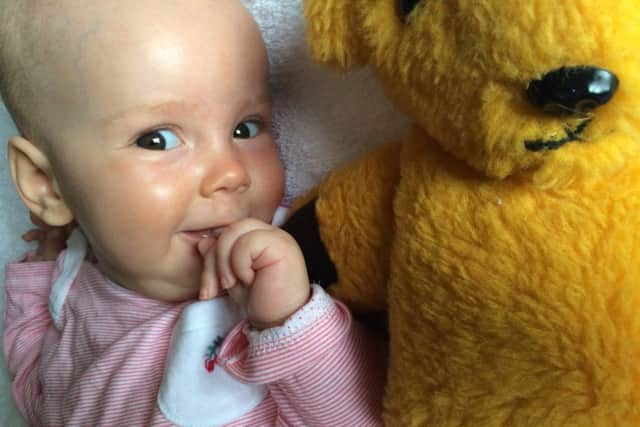

Type 1 is the most severe form of the condition, with most babies dying before the age of one.
Despite SMA only affecting one in 10,000 births, Type 1 is the biggest genetic killer of babies under the age of two.
Approximately one in 50 people carry the faulty copy of the SMN1 gene and when two carriers have a baby, there is a one-in-four chance of the child developing the condition.
Advertisement
Hide AdAdvertisement
Hide AdFaced with every parent’s nightmare, the couple quickly made a commitment to “fill every minute we had together with as much fun and love as we could muster” and travelled the country in their camper van, Vimto.
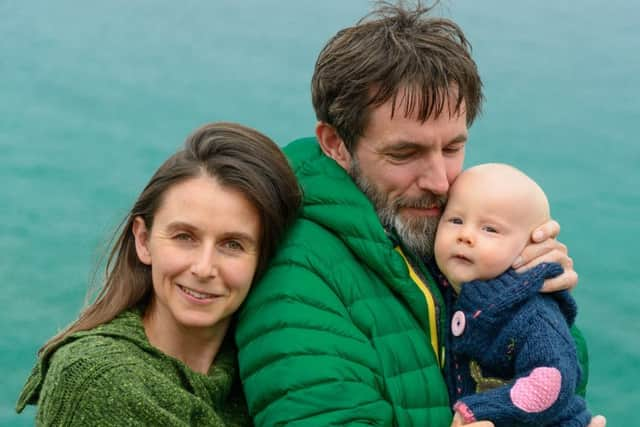

Clare said on their travels Grace stayed in a Georgian folly in Wensleydale, felt sand in her fingers, snoozed under the Cornish sun, tasted blueberries and lemon curd and listened in fascination to the bird’s singing every morning.
“She was so full of joy and happiness despite everything her little body had to go through - with never-ending smiles and a cheeky twinkle in her eye,” she said.
But while in Cornwall, Grace suddenly took a turn for the worse and the family quickly returned to Leeds - to Martin House Children’s Hospice.
Advertisement
Hide AdAdvertisement
Hide AdThere, on July 23 last year, Grace lost her brave battle with the condition aged just eight months and three weeks.
Clare said it was the day their hearts “crumbled into a million pieces” but she praised the “incredible care” provided at the Boston Spa hospice.
“It’s impossible to put into words what Martin House did for us all while Grace was alive, in the weeks after she died and with their bereavement support ever since. The memories of our time there will never leave us.”
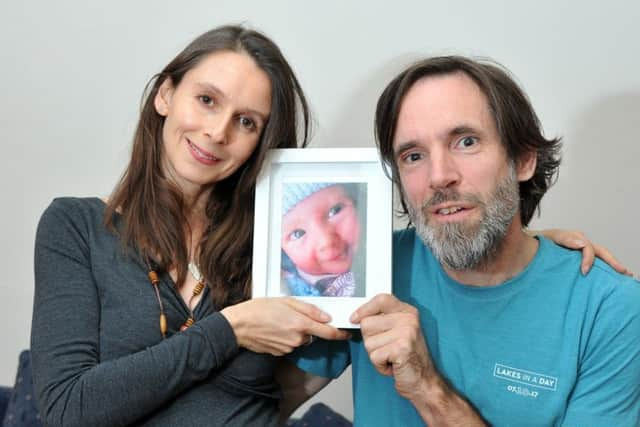

Clare said, thanks to the hospice, Grace’s last day, while “devastating”, was also “amazing”.
Advertisement
Hide AdAdvertisement
Hide Ad“We had a day in the sunshine, a barbecue, playing guitar and music to her and Grace’s carers were there to support us and administer morphine to keep her calm her when the time came. Grace died in our arms while we talked to her and sang her favourite songs.”
As a way of saying thank you, Clare is tonight (Saturday, November 4) taking part in the hospice’s Strictly Get Dancing fundraiser at The Engine Shed in Wetherby - dancing alongside Dan Greenwood, a junior doctor and the son of one of the hospice nurses.
Clare said: “Grace transformed our lives in the most amazing way and we feel honoured to have been able to bring her into the world and to have shared our lives with her. Together, she and Martin House showed us how to celebrate the very best of life when faced with the very worst.”
To sponsor Clare, visit https://mydonate.bt.com/fundraisers/claremcveigh1
THE FUTURE
Advertisement
Hide AdAdvertisement
Hide AdLast year the first ever treatment for Spinal Muscular Atrophy (SMA) was approved - sadly too late for baby Grace.
Clinical trials were taking place when Grace was diagnosed at four months old, but by that time she was too far gone to take part; her muscles had already begun to waste away.
Clare is now backing a campaign to push NHS England to provide funding and unrestricted access to treatment with the drug, called Spinraza, as soon as possible.
She said: “Yes the treatment is expensive but it’s THE only treatment ever made available to show any improvement to help symptoms. The treatment is still in its early stages but could give the chance of a better quality of life for some SMA sufferes. Research is advancing quickly. The longer we can keep babies’ muscles alive, the better the chance they have.
Advertisement
Hide AdAdvertisement
Hide Ad“It’s a horrendous disease which slowly paralyses, usually starting from the legs up until they can’t breathe and could choke on their own saliva. If we can do anything to help these babies surely it’s worth the cost?”
Clare also hopes to raise awareness of the symptoms of SMA so diagnosis can be made earlier than it was with Grace - and could ultimately lead to swift access to treatment.
“They have to diagnose early to give them the better chance of success.
“With Grace, no-one knew it was SMA at first - but it exists. And it’s the biggest genetic killer of babies under two. Our local doctors and nurses have all been incredibly supportive. We understand it’s very difficult to diagnose, as motor development is hard to asess in tiny babies. People need to be made aware of the early signs.”
Advertisement
Hide AdAdvertisement
Hide AdClare and Robin are now pregnant with Grace’s brother or sister and after new, non-invasive testing for SMA it looks like the baby will be a carrier but not affected by the condition - although the test is not 100 per cent conclusive.
She said the decision to have another baby was “incredibly tough”.
“We focused on the fact there was a 75 per cent chance that our child would not be born with SMA and that if it was, we would have the strength to get through and give them the best possible life that we could.”
She added: “We hope beyond hope that the test results are correct and in the meantime, we are doing everything we can to enjoy our pregnancy and to give time and space to continue to include our love for Grace and the magic that she brought to our lives.”